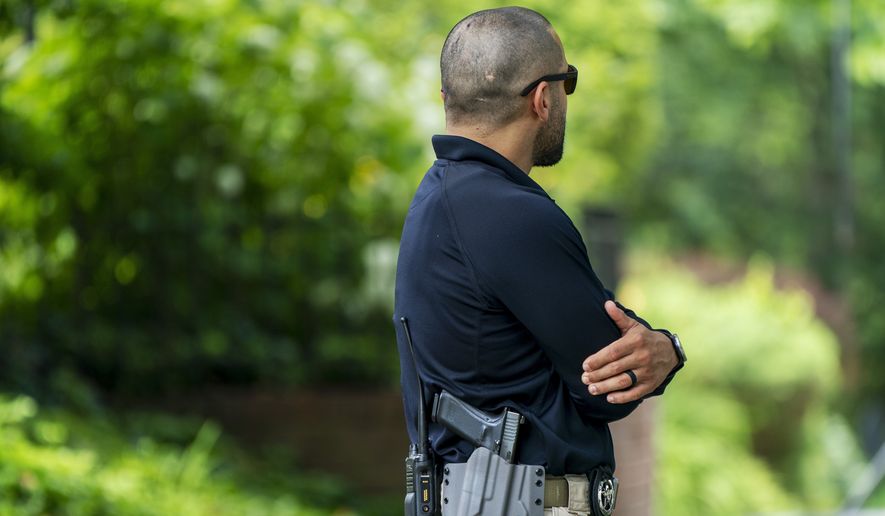Deputy U.S. marshals assigned to guard Supreme Court justices last year were directed to try not to make arrests, according to documents a U.S. senator revealed Tuesday, contradicting Attorney General Merrick Garland’s assurances to Congress.
Sen. Katie Britt, Alabama Republican, confronted Mr. Garland with the training package used for the marshals deployed to protect justices. It said arrests were not to be a priority.
Conservatives have argued the protests, which erupted after a draft of the Dobbs ruling leaked last spring, violate a federal statute that outlaws protesting against a judge’s home with the intent of influencing a ruling.
Nobody was charged under that statute.
Mr. Garland told senators earlier this month that his prosecutors couldn’t bring cases unless the marshals made arrests, and the marshals on the scene didn’t think there was a reason to do that.
Ms. Britt said the guidance documents show they were directed not to.
“They were actively discouraged from doing so,” she said.
One section of the guidance specifically said making arrests was “not the goal” of the deployment, and another section said arrests should be “a last resort to prevent physical harm.”
That seems to undercut Mr. Garland’s suggestion that agents were free to make arrests for protesting judges but just didn’t see any need.
One page of the guidance dealt specifically with the law governing pressuring of judges. It said the law could invite legal challenges, and discouraged the marshals from making arrests under that section.
A final page said any arrests needed to be coordinated with federal prosecutors first, which Ms. Britt said also contradicts Mr. Garland’s assertion that the marshals had a free hand.
“Any contemplated [marshals] enforcement action should be coordinated in advance with the appropriate USAO,” the guidance said, using the abbreviation for U.S. attorney’s office.
Ms. Britt asked Mr. Garland at a Senate Appropriations Committee hearing on Tuesday whether he was aware of the directives.
He said he was not aware, but stood by his earlier comments that the marshals were still able to act.
He said their first responsibility was to protect the lives and property of the justices “but that doesn’t mean they are in any way precluded from making other kinds of arrests.”
“It’s clear the marshals were given a different directive,” Ms. Britt told him. “I’d ask you to look into that.”
The lack of arrests has struck a nerve with conservatives who draw a contrast with the Justice Department’s zealous efforts in prosecuting pro-life demonstrators outside abortion clinics.
Mr. Garland defended his handling of the justices’ security, saying he took the unprecedented step of deploying the marshals to protect the justices.
But he told the Appropriations panel Tuesday that he doesn’t want that mission to last indefinitely, and that the Supreme Court’s police force should take over at some point.
“We were hoping this isn’t a long-term solution for justices,” he said.
• Stephen Dinan can be reached at sdinan@washingtontimes.com.




Please read our comment policy before commenting.